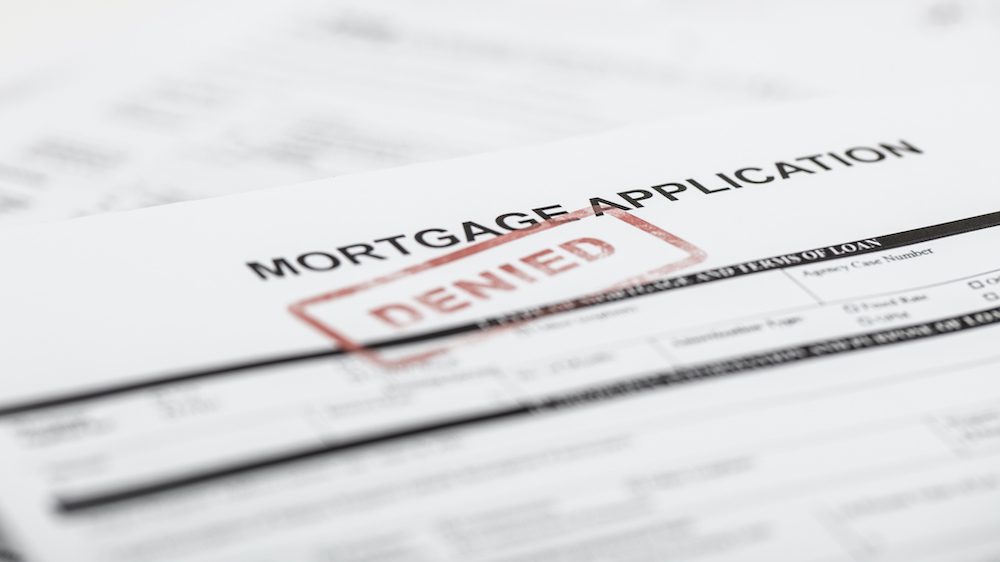Our Home Buyer Wasn’t Approved for a Loan—What Now?
If you’re selling a home, it’s always exciting when a buyer makes an offer that you accept. Although this is a major milestone on the march toward closing, there are many points where this deal can go off the rails—like if you find out your home buyer wasn’t approved for a mortgage.
What now?
If you find yourself in this situation, you could be thinking all hope is lost. But it turns out there are a few paths you can still take. Here’s what the experts say is likely to happen, and what you can do if you want to salvage the deal.
Why home buyers aren’t always approved for a mortgage
First, let’s talk about why a home buyer might not be approved for a loan. It’s recommended that buyers talk to a mortgage lender before they even start home shopping and get pre-approved, meaning they find out how much the bank is willing to lend them to buy.
Still, pre-approval is not a guarantee that a buyer will get a loan. This can happen for a variety of reasons, says Jimmy Jones, an Atlanta-based real estate professional.
The most likely reasons for a loan being shot down include the following:
- The buyer’s credit score isn’t as high as the lender requires.
- The buyer’s debt-to-income ratio (a figure that sums up how much money the buyer owes creditors vs. how much money the buyer makes) may not be sufficient.
- The buyer may not have enough money for a down payment.
- The buyer’s financial situation may have recently changed (e.g., becoming unemployed).
- The lender got a home appraisal in which the appraiser decided the home was not worth as much as the buyer has offered to pay.
Do you have to give back the buyer’s earnest money?
When buyers sign a purchase agreement, they typically put up a certain amount of money to show their commitment to buying a property. Called earnest money, this amount is held in escrow so neither party can touch it until the purchase process is complete. But when a buyer isn’t approved for a loan, that earnest money is released.
If the purchase agreement included a finance contingency, a special stipulation that said the agreement was conditioned on the buyer getting a loan, the earnest money goes back to the buyer, says Maria Picardi-Kenyon, an agent with Re/Max Tri County Realtors in Hamilton, NJ.
If the buyer waived any kind of financing contingency, the seller may be able to keep the money, but that’s something you’ll need to talk about with your real estate attorney.
As for money owed to the agents who have been handling the sale, sellers typically owe nothing until there is a formal closing and the property changes hands.
Can you still work with the buyer?
If your home has been on the market for a while and this buyer seems like your only shot at selling, you may be wondering if you can still work with them. The answer: yes!
If you have no other potential prospects, it may make sense to give the buyer time to find another lender, says Gordy Marks, managing broker with Re/Max NW in Seattle.
This largely comes down to the reason the loan was not approved. Did the bank require a down payment that was too high, for example? Then the buyer may be able to seek out a lender with different requirements for the down payment or pay mortgage insurance.
If the loan was shot down because the home appraisal was too low, the seller may also opt to make some improvements and ask for a reappraisal. If the bank’s evaluation raises the estimation of the value of the home, the lender may decide to approve the loan after all.
What happens to my listing if the buyer doesn’t get a loan?
If you don’t want to work with the buyer, you’re not obligated to, Marks says.
In fact, as long as your listing agreement with your real estate agent is still valid, when the purchase agreement gets canceled, the property goes back on the market and your agent goes back to trying to sell it to a new buyer. The agent won’t be owed any money until she actually finds a buyer who can get financing and make it all the way through the closing.
The post Our Home Buyer Wasn’t Approved for a Loan—What Now? appeared first on Real Estate News & Insights | realtor.com®.
HOMEBUYERS BEWARE! Book Review
This book is an excellent first step in a complicated process.

BEWARE the cards are stacked against you! Get Tom Wemett's book, learn why are different from other
Buying a home is like buying a car, on steroids. It’s the biggest investment you are likely to make so the stakes are incredibly high. I knew that having an agent represent me was a good idea.
What I hadn’t grasped was how important it is to find one who is not connected with the selling side in any way—through an agency that also represents sellers, as most do, at least in Mass. In researching buyer agents, I found Tom through the Mass. Assoc. of Buyer Agents (MABA).
Selecting the Right Homebuyer's agent
 Unlike most other real estate agents, a MABA home buyer's broker never represents both a buyer and seller in the same transaction so you never have to worry whether a MABA agent is really looking out for your best financial interests. A MABA buyer's agent acts as your advocate, real estate educator, advisor and negotiator, always loyal to you and dedicated to helping you find and buy the best home with the best terms at the price and showing you which homes to avoid along the way.
Unlike most other real estate agents, a MABA home buyer's broker never represents both a buyer and seller in the same transaction so you never have to worry whether a MABA agent is really looking out for your best financial interests. A MABA buyer's agent acts as your advocate, real estate educator, advisor and negotiator, always loyal to you and dedicated to helping you find and buy the best home with the best terms at the price and showing you which homes to avoid along the way.
Fewer than one percent of the agents and brokers in Massachusetts meet our high standards.
Whether you are ready to buy now or just beginning your home buying journey, click here to choose a Great Buyer's Agent to answer all of your home buying questions!
Article From: "Jeanne Sager" Read full article
Get Started with MABA
For no extra cost, let a MABA buyer agent protect your interests



